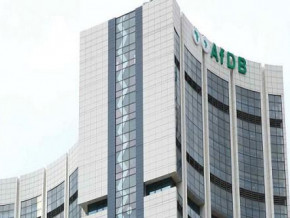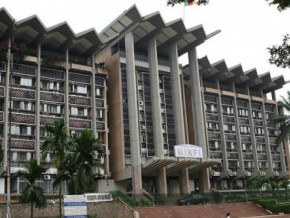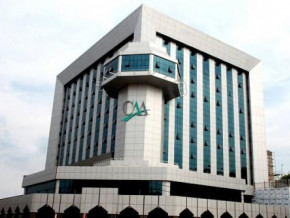
High cost of living: Cameroon suspends export of certain products to curb shortages

(Business in Cameroon) - In a letter dated April 22, 2022, Cameroon's Minister of Trade, Luc Magloire Mbarga Atangana (photo), instructed the governor of the East region to take "immediate measures to suspend, until further notice, the export" of products such as cement, refined oils, wheat flour, rice, locally produced cereals, etc. This measure, the official says follows the "severe shortages of products on the local market”.
The Minister says traders prefer to do business with the Central African Republic (which shares a border with Cameroon in the locality of Garoua-Boulaï) to the detriment of the local market. According to reliable sources, traders in the south, a Cameroonian region in which intense commercial activity with Equatorial Guinea and Gabon has developed, are also targeted by the ministerial measure.
In the northern part of the country, where Nigerian traders come to stock up on cereals and other foodstuffs, thus undermining the supply of the local market, exports of locally produced cereals and refined oils have been banned since December 2021. The measure, initially prescribed only to the governor of the Far North region on December 3, 2021, by the Minister of Commerce, has been extended to the entire territory by a note from the Director-General of Customs on December 27, 2021.
After a general increase in market prices, motivated by the post-Covid period and the conflict between Russia and Ukraine, Cameroon is now facing a shortage of some consumer products. These include cement, which producers claim to supply regularly to the market.
Fraudulent re-exports
Cement companies are suspected of creating market tensions to force the government to approve new, higher prices to reduce production surcharges estimated at more than CFA1,000 per bag since 2021. These additional costs can be offset by selling more products in neighboring countries (Gabon, Equatorial Guinea, CAR), where prices to consumers are much more attractive and less regulated by public authorities.
This price attractiveness in other markets also justifies why large shipments of rice, although imported for local consumption, are fraudulently re-exported to neighboring countries. According to the National Institute of Statistics (INS), in 2019 alone, no less than 332,300 tons of rice were re-exported to neighboring countries by Cameroonian traders. These re-exports "would amount to about CFA87 billion," the INS points out.
To make matters worse, the sugar producer Sosucam, which controls about 70% of the Cameroonian market, has just announced the suspension of activities at its Mbandjock factory in the Centre region, due to the shortage of diesel fuel on the national territory. With this decision, the company will be deprived of a production capacity of 300 tons per day. This in turn affects the sugar supply in the local market, especially during the fasting period of Ramadan, when sugar consumption increase tenfold on the market.
Brice R. Mbodiam
Mags frontpage
- Most read 7 days
- shared 1 month
- read 1 month






























